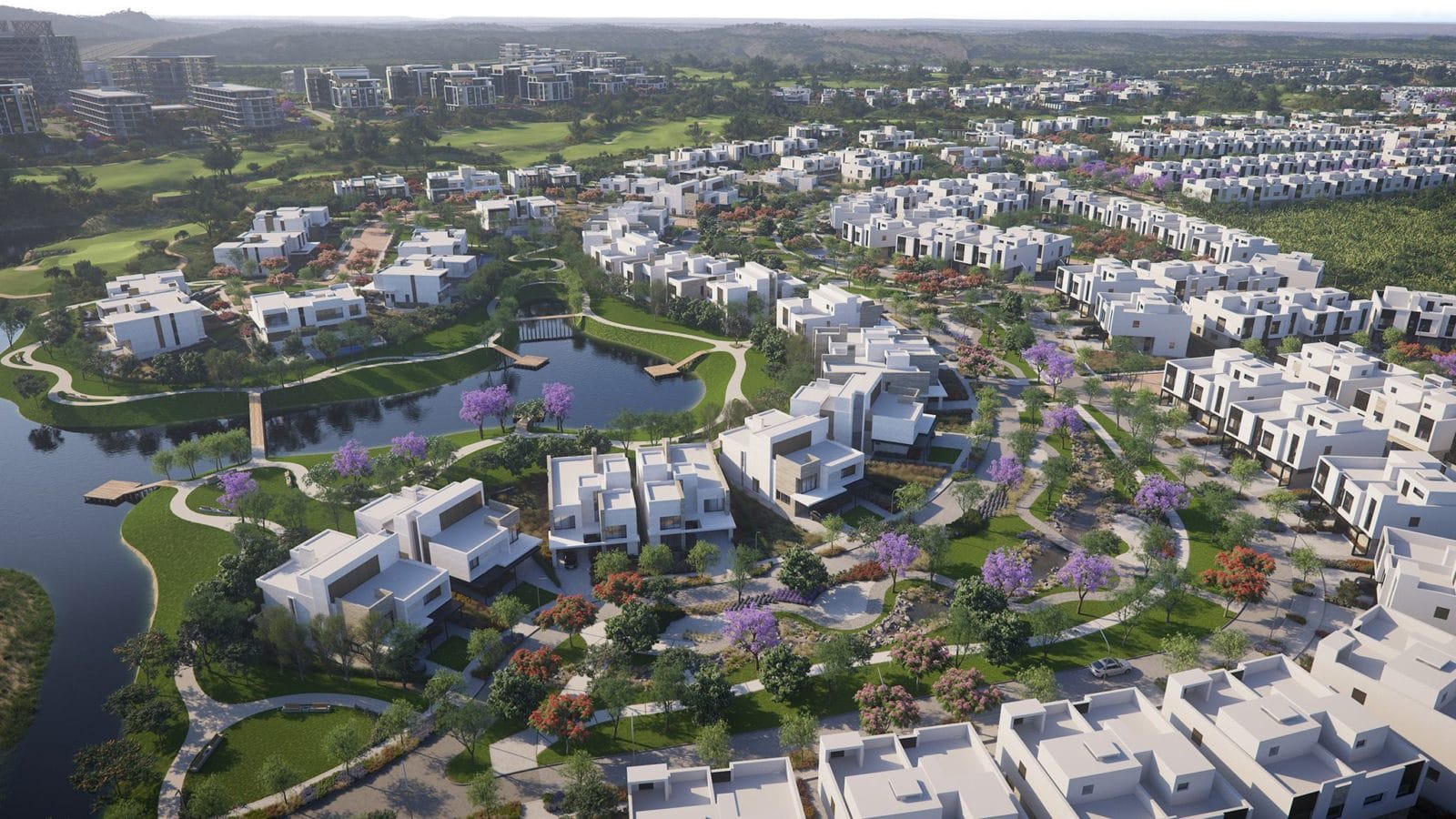Blockchain in Real Estate: Securing the Future of Property Transactions in Pakistan

Introduction
Blockchain, often associated with cryptocurrencies, is now making its mark in real estate—bringing transparency, security, and efficiency to a traditionally complex industry. In Pakistan, where land ownership disputes, title fraud, and paperwork delays are common, blockchain technology offers a much-needed solution.
Leading developments like Falaknaz Greens, One Beverly, and The Mega Mall are beginning to explore blockchain applications to provide greater trust and automation for their buyers and investors. This blog explores how blockchain is redefining the real estate process and why it could be the backbone of Pakistan’s property future.
What is Blockchain?
At its core, blockchain is a digital ledger system that records transactions securely and immutably across a distributed network. Each “block” contains information (like a property sale or ownership detail), and once added to the “chain,” it cannot be altered.
For real estate, this means:
Fraud-proof title transfers
Instant, verifiable transactions
Decentralized property registries
Smart contracts to automate agreements
Key Challenges in Pakistani Real Estate
Pakistan’s real estate sector has traditionally been marred by:
Manual land records
Delayed property transfers
Lack of transparency
Forged ownership documents
Multiple claims on the same property
Buyers, especially overseas Pakistanis, often hesitate due to uncertainty around property legitimacy and transaction security.
Blockchain is the perfect antidote to these issues.
How Blockchain Transforms Real Estate
1. Tamper-Proof Land Records
Blockchain creates an unchangeable chain of ownership, ensuring that once a property title is recorded, it cannot be manipulated or lost.
For example, if Falaknaz Greens were to integrate blockchain into its ownership registry, every buyer would have a secure digital proof of ownership, backed by a decentralized system.
2. Smart Contracts
Smart contracts are self-executing agreements written in code. They automatically trigger actions (like transferring ownership or releasing payments) once pre-agreed conditions are met.
In a purchase at One Beverly, this could mean:
The buyer’s payment is released when title transfer is confirmed
No need for intermediaries like agents or lawyers
Zero paperwork delays
This simplifies the buying process and reduces legal costs significantly.
3. Instant and Transparent Transactions
Blockchain enables peer-to-peer property transfers in real time. Each transaction is timestamped, digitally signed, and permanently recorded—providing full visibility for both parties.
For commercial units in The Mega Mall, this means investors can confidently enter into agreements, knowing their transactions are publicly verifiable and tamper-proof.
4. Reduced Fraud and Disputes
Because blockchain data cannot be changed once recorded, the risk of duplicate sales, fake documents, and forged titles is eliminated.
This is particularly important for:
Overseas investors
Joint ventures
Developers issuing early-bird investments in off-plan projects
With blockchain, each asset has one verified digital identity, reducing conflict and confusion.
Real-World Applications in Pakistan
While full blockchain adoption is still in its early stages, positive steps include:
Punjab government’s digitization of land records
Sindh exploring blockchain-based registries
Startups offering tokenized property investment platforms
Developers testing blockchain smart contracts for pre-bookings
Forward-looking projects like One Beverly and Falaknaz Greens are expected to be among the early adopters as demand for secure transactions grows.
Benefits for Buyers and Investors
Transparency: Every stage of the buying process is visible
Security: Digital contracts and ownership cannot be altered
Efficiency: Transactions that once took weeks now happen in minutes
Cost Savings: Fewer middlemen mean fewer commissions and legal fees
Confidence: Overseas Pakistanis can invest remotely without fear
Benefits for Developers
Faster Sales Cycles
Real-Time Payment Confirmations
Legally Binding Smart Contracts
Immutable Project Documentation
Stronger Brand Trust in the Market
Developers like those behind The Mega Mall can digitize and secure leasing agreements, tenant data, and investor records—making project management easier and more credible.
Limitations and Roadblocks
Despite its potential, blockchain faces a few challenges in Pakistan:
Lack of awareness and expertise
Slow government adoption of tech laws
Resistance from traditional property middlemen
Data standardization across provinces is still incomplete
However, with growing interest and pilot projects already underway, Pakistan is slowly building the infrastructure for blockchain-driven real estate.
The Future of Real Estate with Blockchain
The next 5–10 years could see:
Blockchain-powered property portals with verified listings
Tokenized property investments (fractional ownership through tokens)
Smart escrow systems for risk-free payments
Blockchain land registries linked directly to NADRA for ID verification
Projects that embrace these tools early—like Falaknaz Greens, One Beverly, and The Mega Mall—will stand out as trusted, forward-thinking investments in the market.
Final Thoughts
Blockchain is not just a technological upgrade—it’s a revolution in how real estate will be bought, sold, and owned. It brings transparency to a sector that desperately needs it and builds trust where skepticism once ruled.
For developers, buyers, and investors in Pakistan, blockchain offers more than security—it offers a smarter and faster way to build wealth through property. The future belongs to those who build on this digital foundation—and the future is already here.


